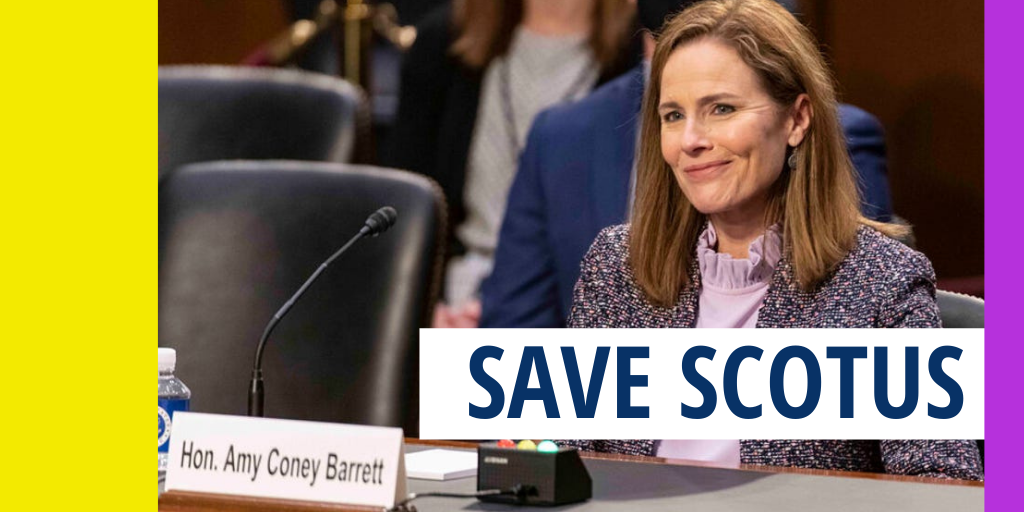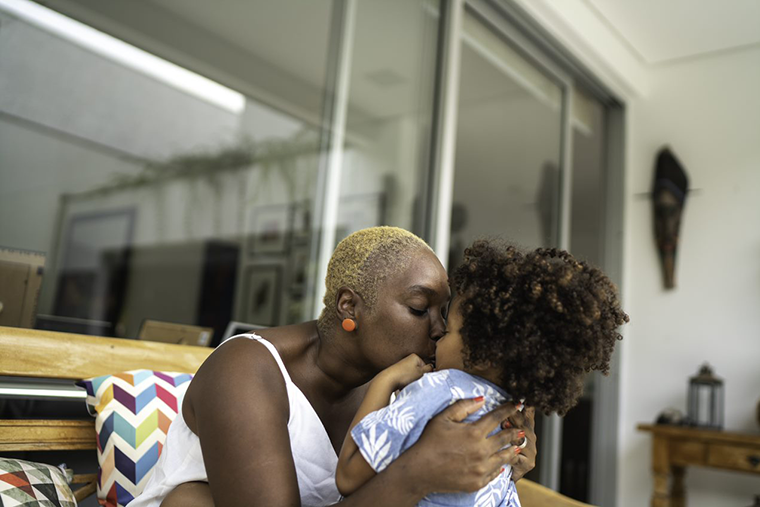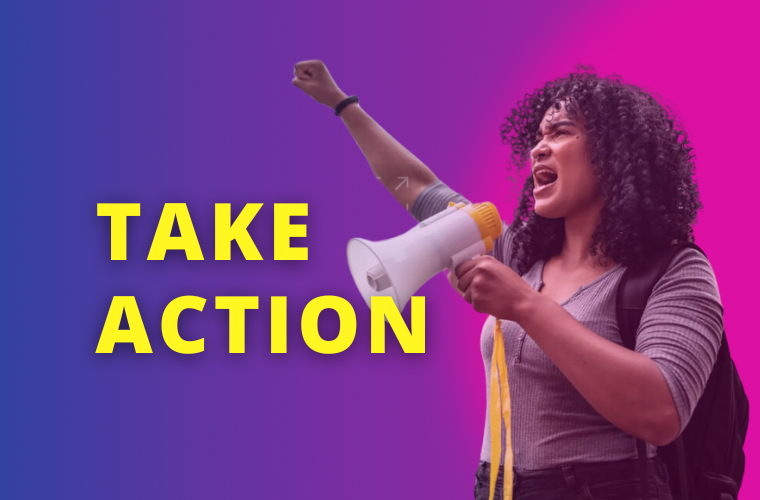

Amy Coney Barrett Puts Women at Risk
By Noreen Farrell & Delia Coleman
The confirmation of Judge Amy Coney Barrett would put our country in grave danger. We risk losing progress made, yes, but worse than that, we risk making her regressive politics the national precedent. We won’t mince words — Judge Amy Coney Barrett’s politics and record are a disaster for working women and their families, students who experience discrimination in education, the LGBTQ+ community, and voting access for communities of color.
With ACB’s brief but telling record (because we could glean nothing from her lack of forthright responses during her confirmation hearing), we find the personification of several key policy threats to civil rights and economic security: anti-abortion extremism, anti-Affordable Care Act dogma, a sympathy for those who would take away the rights of LGBTQIA+ people, and a stubborn refusal to defend basic voting rights for Black Americans.
Barrett’s deeply-held beliefs on abortion align closely with those of Justice Samuel Alito and Justice Clarence Thomas, all of whom are staunchly anti-abortion access. Barrett wrote a 2013 Texas Law Review article that Roe v. Wade is not among a list of the seven most influential Supreme Court cases, known as “superprecedents,” implying strongly that she could support an effort to overturn it. This, of course, is a key strategy of Senator Mitch McConnell and President Trump, both of whom have promised to flood the judiciary with anti-abortion judges. The politicization of access to reproductive health services means that the millions of women who rely on clinics for care each year could be abandoned. At least 21 states are likely to ban abortion should Roe be overturned.
With ACB’s brief but telling record, we find the personification of several key policy threats to civil rights and economic security.
The end of abortion rights is not the only harbinger of economic decline for women. So, too, are Barrett’s views on the rights of workers. Her record siding against workers goes back as far as her nascent legal career, favoring employers over workers with disabilities, workers due overtime, and even an employer who harassed an employee for taking leave time to care for his sick grandfather.
Barrett is on the record questioning the legality of the Affordable Care Act multiple times, including stating support for the legal arguments of some litigants who have sued the government to overturn the ACA. Not only does she candidly and publicly admit to biases against the landmark expansion to healthcare access that 55% of Americans support, but she has refused to commit to recusing herself from any litigation about the ACA, should she be confirmed. This violation of the high court’s norms is shocking, but not surprising.
She objects, too, to another broadly supported Supreme Court precedent — and a milestone in equality. In 2015, Barrett signed on to a letter defining marriage as the “indissoluble commitment of a man and a woman.” Should her nomination go through, it can be assumed that Barrett will work with the far right wing of the court to dismantle the progress made in recent decades to ensure marriage equality. Moreover, refusing to agree that poll taxes are unconstitutional, that there is evidence that Black communities navigate more barriers to exercise their right to vote, and in light of the alarming 4–4 split this week on the SCOTUS about Pennsylvania’s right to enforce their own election rules, Judge Amy Coney Barrett will likely be the deciding vote in limiting future voting rights for Black and Latinx communities.
It is said the arc of justice bends slowly. Judge Amy Coney Barrett’s lifetime appointment as a militant judicial reactionary on our highest court will ensure the arc of justice won’t bend at all.
Noreen Farrell is Executive Director, and Delia Coleman is Deputy Director of Equal Rights Advocates.
Stay Connected & Take Action
- Get the Latest News & Information Sign up for Email Updates
- Sign Up for Action Alerts Join the Action Team
- Follow Us


